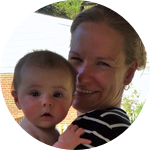Sleep
Categories

Sleep science is among the most intimately familiar and also the strangest. We know it’s important, both viscerally and based on huge amounts of evidence, but very little about why or how it works. This grant challenge aims to fund research on sleep in fields from neuroscience to social science, and acquaint the rest of us with what is known about the third of our lives we aren’t conscious for.
The Projects
Browse the participating projects
Using Mobile Sensors To Measure Sleep as a Biomarker of Brain Development in Infants
Infancy is an ideal time to study brain rhythms during sleep in humans. During the first year of life, infants...
The People vs. Academia: Crowdsourcing the analysis of sleep
Brainwaves during sleep are a window into cognition, early marker of mental disorders, and brain deterioration...
Can extending sleep improve cognition in children with ADHD?
Increasing the amount of sleep children get, by advancing bedtime, improves cognitive functioning of typically...
More About This Challenge
The sciency details
Challenge Aims
The rising trends of sleeplessness, sleep medications, and more powerful brain imaging technology all conspire to make sleep research particularly relevant today. The work coming out of it is fascinating: A recent paper suggested that humans sometimes sleep with half a brain, something we thought only birds and sea mammals did. Computers are creating images of people’s dreams based on their brain activity. We’re discovering that the cause of many psychiatric disorders could be simple misalignment of circadian rhythms.
It's also important, given how dangerous we know sleep deprivation to be. It's one of the major causes of car crashes, and increases chances of heart attack, stroke, diabetes, and obesity. Rumors are going around that Prince's death was linked to staying awake for 6 days prior.
Cognitive Science
A lot of research focuses on how sleep affects memory and learning, how the brain coordinates biological clocks, and what goes on during our brains during sleep. The fact that we can peer into people’s brains while they sleep using fMRIs and other brain imaging technology lets us make quantitative observations that were previously impossible.
Health & Medicine
Around 50-70 million US adults have sleep disorders and 9 million are taking prescription medications for them. Other treatments like sleep apnea surgery and cognitive behavioral therapy are gaining traction. Because of the disastrous effects of sleep deprivation, sleep is a major public health concern.
Genetic, Evolutionary & Animal Sciences
Genetic bases of sleep disorders, the evolution of sleep, animal hibernation and half-brain sleep are other pathways into the black box of our sleeping bodies. Humans are actually the most efficient sleepers of animals our size, and there could be a genetic mutation that causes some humans to be even more efficient.
Project Eligilibity
This grant is for projects that launch campaigns by May 20, 2016. The project that ends with the most backers will receive an additional $1,000 grant. Eligible projects must be approved before the launch deadline.



 Challenge Grants
Challenge Grants